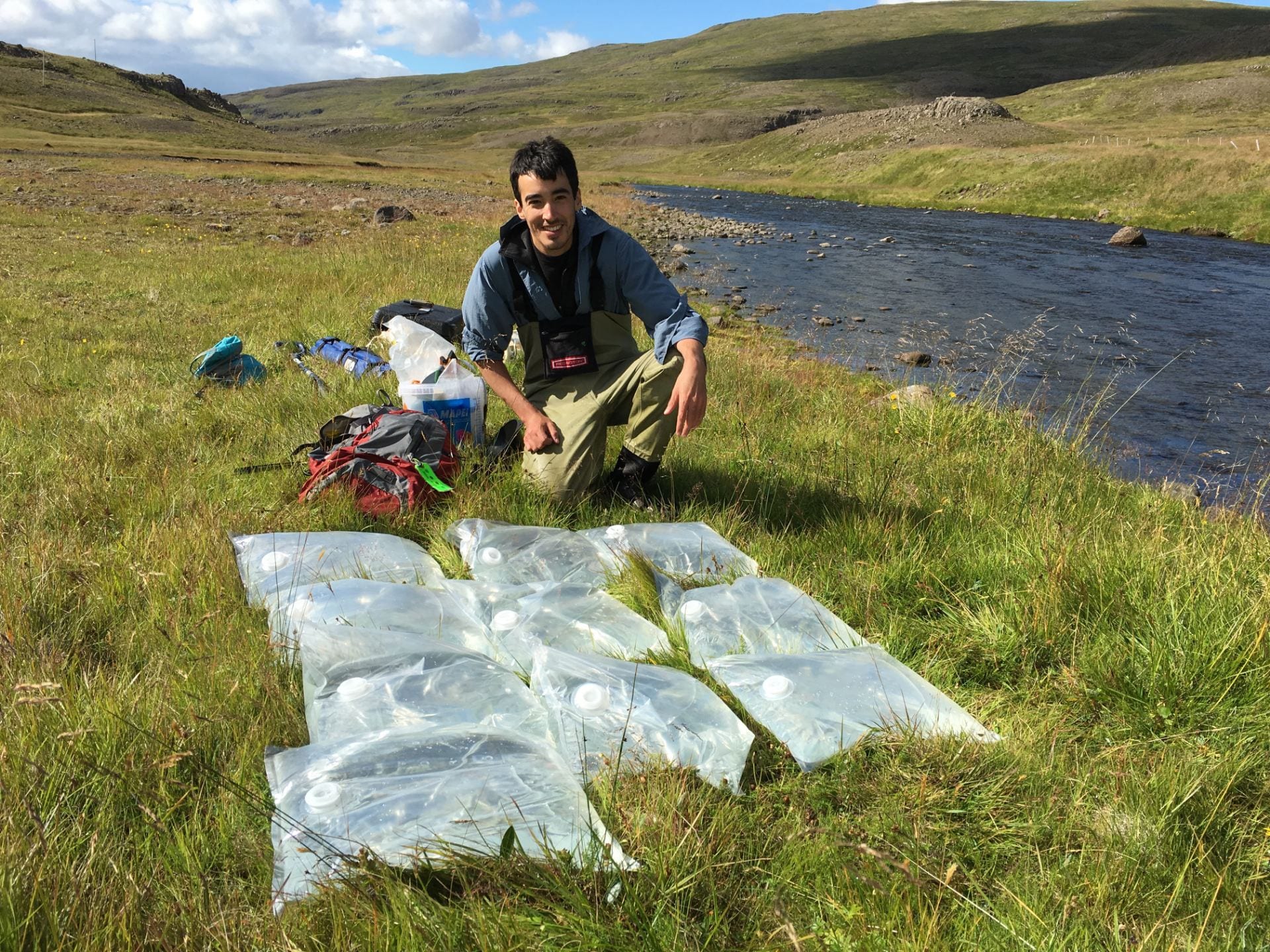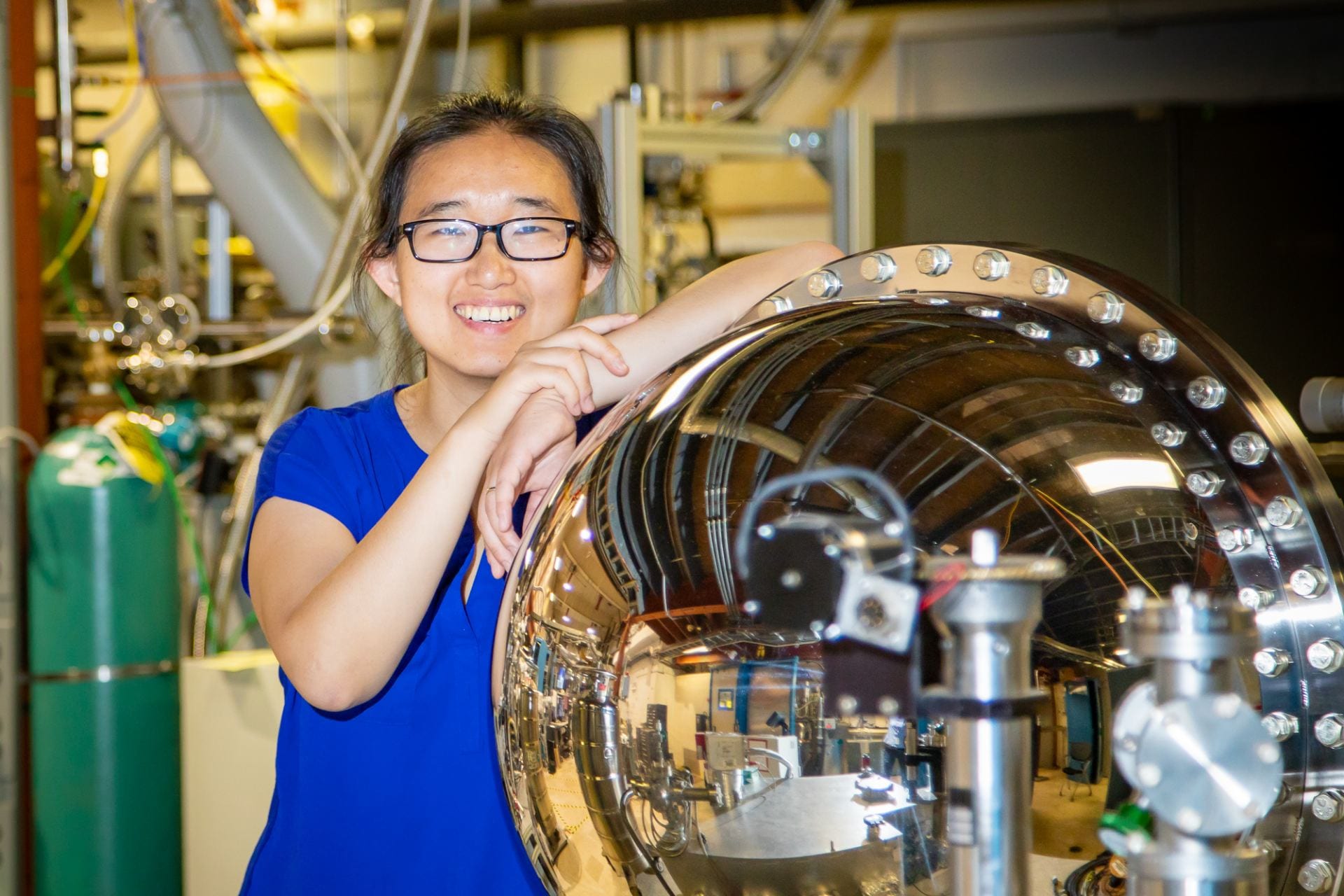David Ruth
713-348-6327
david@rice.edu
Jade Boyd
713-348-6778
jadeboyd@rice.edu
2 Rice faculty members awarded Sloan Research Fellowships
Torres, Yi selected for work in ocean sciences, physics
HOUSTON – (Feb. 20, 2019) – Two Rice University faculty members have been selected as 2019 Alfred P. Sloan Research Fellows.
Mark Torres, assistant professor of Earth, environmental and planetary sciences, was honored for his work in the field of ocean sciences, and Ming Yi, assistant professor of physics and astronomy, was awarded for physics. The two-year, $70,000 fellowships seek to stimulate fundamental research by early-career scientists and scholars while recognizing their distinguished performance and unique potential to make substantial contributions to their fields.
Torres and Yi are among 126 U.S. and Canadian researchers to receive a 2019 fellowship.
“This fellowship gives me freedom to pursue interesting ideas and, in a sense, validates the work I’ve started to do at Rice,” Torres said. “At this point in my career, these are my first steps on my own, and it’s nice to know those steps are headed in the right direction.”
Torres’ high school was attached to a museum of paleontology, which sparked his passion for studying Earth. Encouraged to turn this passion into a career, he took geology classes and found work at the interface between geology and chemistry to be the most captivating. His research concerns how concentrations of carbon dioxide and oxygen in the atmosphere are regulated over geologic time and what makes planets habitable.
“The chemistry of the ocean is really important,” Torres said. “The amount of carbon dioxide in the atmosphere is very dependent on the chemistry of the ocean. Most of my research so far has focused on how rivers, by delivering different chemical elements to the ocean, influence ocean chemistry and atmospheric carbon dioxide. On the other hand, the way in which chemical elements get removed from ocean water should be just as important and will be the focus of my work supported by this fellowship.”
Yi’s research lab, an experimental condensed matter physics group, aims to advance the fundamental understanding of exotic properties in materials using spectroscopy tools such as angle-resolved photoemission spectroscopy and X-ray scattering.
“Materials that have exotic properties, such as superconductivity, can revolutionize our future,” Yi said. “My job is to figure out, from a fundamental physics point of view, why these materials have these amazing properties.”
New to Rice, Yi has been on campus since January. “I’m very excited to be at Rice, and I’m honored to receive this award,” she said. “In certain ways, I think it shows that the Rice community is very supportive of young professors, and it’s an encouragement for me to start my own group.”
With her fellowship support, Yi will focus on ways to control and tune exotic material properties. “As physicists, we like to figure out patterns, or overarching frameworks that describe a phenomenon,” she said. “Our goal is to figure out rules to describe and unify the things we see in nature.”
Torres earned a bachelor’s degree in geology from Pitzer College in 2010 and a Ph.D. in geochemistry from the University of Southern California in 2015. He joined Rice in 2017 from the California Institute of Technology.
Yi earned a bachelor’s degree in physics from the Massachusetts Institute of Technology in 2007 and a Ph.D. in physics from Stanford University in 2014. She joined Rice in 2018 from the University of California, Berkeley.
The Alfred P. Sloan Foundation is a philanthropic, not-for-profit, grant-making institution based in New York. Established in 1934 by Alfred Pritchard Sloan Jr., then-president and chief executive officer of General Motors Co., the foundation makes grants in support of original research and education in science, technology, engineering, mathematics and economics.
-30-
Images for download:
https://cpb-us-e1.wpmucdn.com/news-network.rice.edu/dist/c/2/files/2019/02/IMG_0990-2dykqwl.jpg
CAPTION: Mark Torres is an assistant professor of Earth, environmental and planetary sciences at Rice University. (Photo courtesy of Rice University)
https://cpb-us-e1.wpmucdn.com/news-network.rice.edu/dist/c/2/files/2019/02/Unknown-28wq9t0.jpeg
CAPTION: Ming Yi is an assistant professor of physics and astronomy at Rice University. (Photo courtesy of Dawn Harmer/SLAC National Accelerator Laboratory)
Located on a 300-acre forested campus in Houston, Rice University is consistently ranked among the nation’s top 20 universities by U.S. News & World Report. Rice has highly respected schools of Architecture, Business, Continuing Studies, Engineering, Humanities, Music, Natural Sciences and Social Sciences and is home to the Baker Institute for Public Policy. With 3,962 undergraduates and 3,027 graduate students, Rice’s undergraduate student-to-faculty ratio is just under 6-to-1. Its residential college system builds close-knit communities and lifelong friendships, just one reason why Rice is ranked No. 1 for lots of race/class interaction and No. 2 for quality of life by the Princeton Review. Rice is also rated as a best value among private universities by Kiplinger’s Personal Finance. To read “What they’re saying about Rice,” go to http://tinyurl.com/RiceUniversityoverview.



